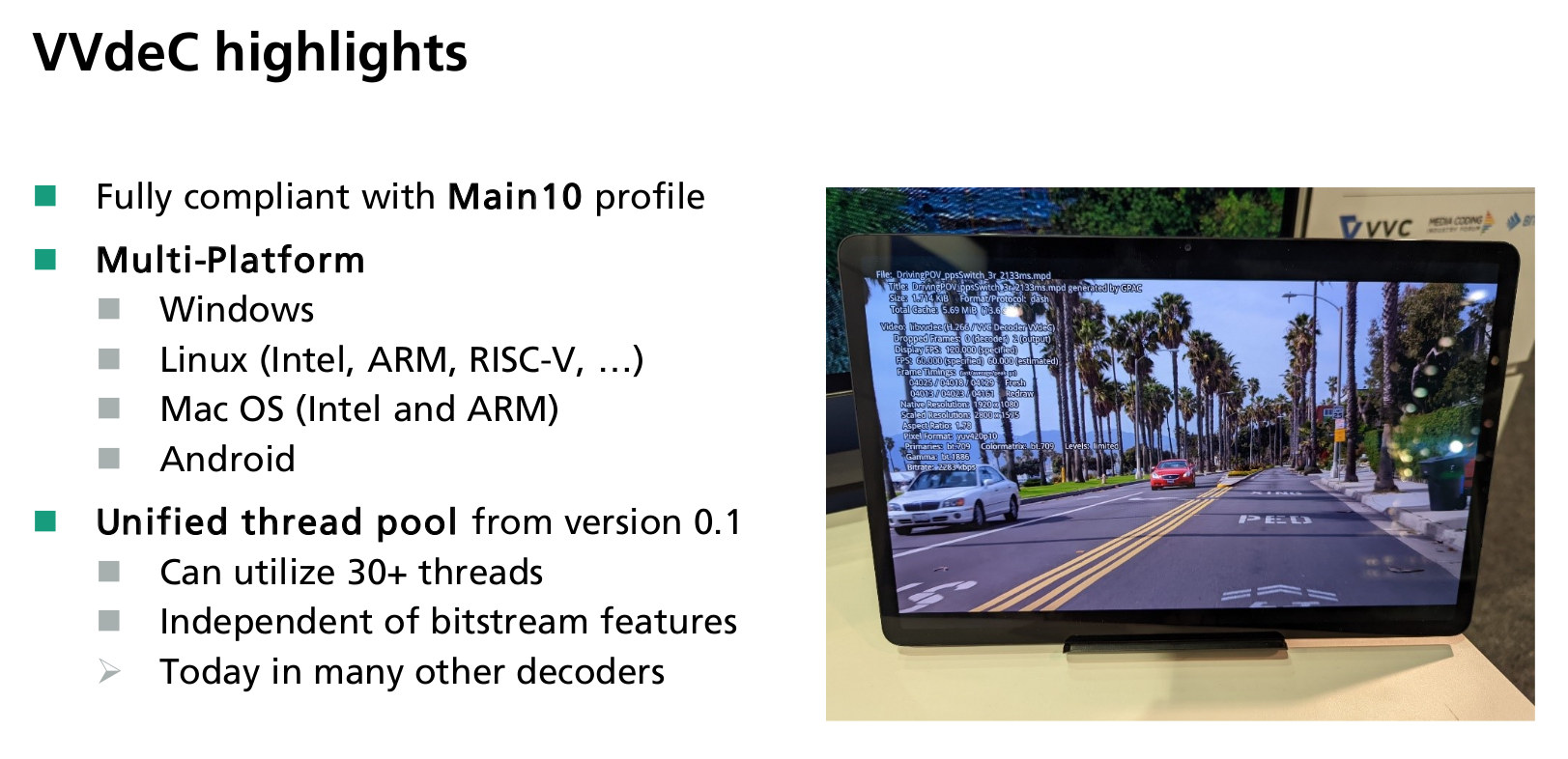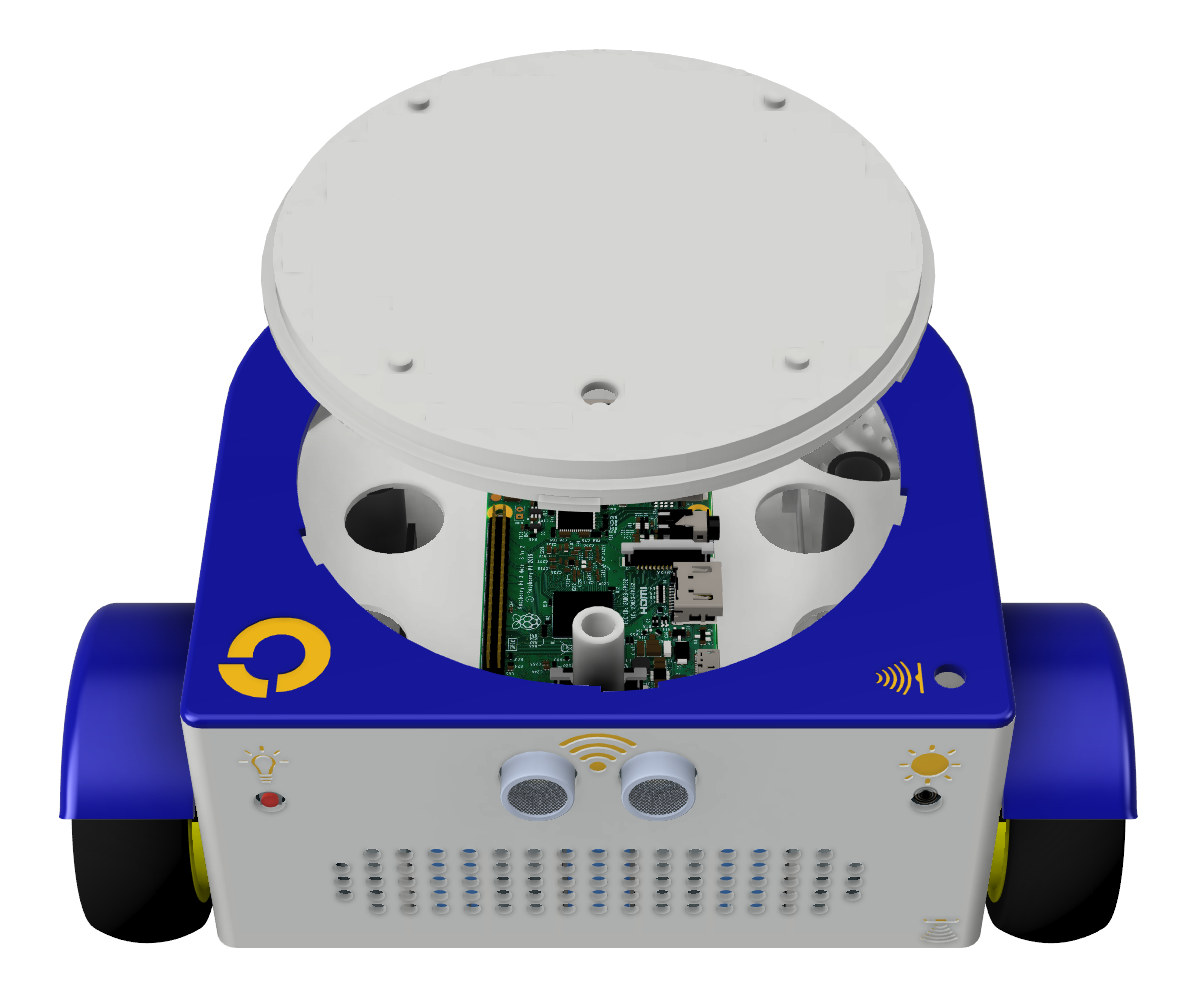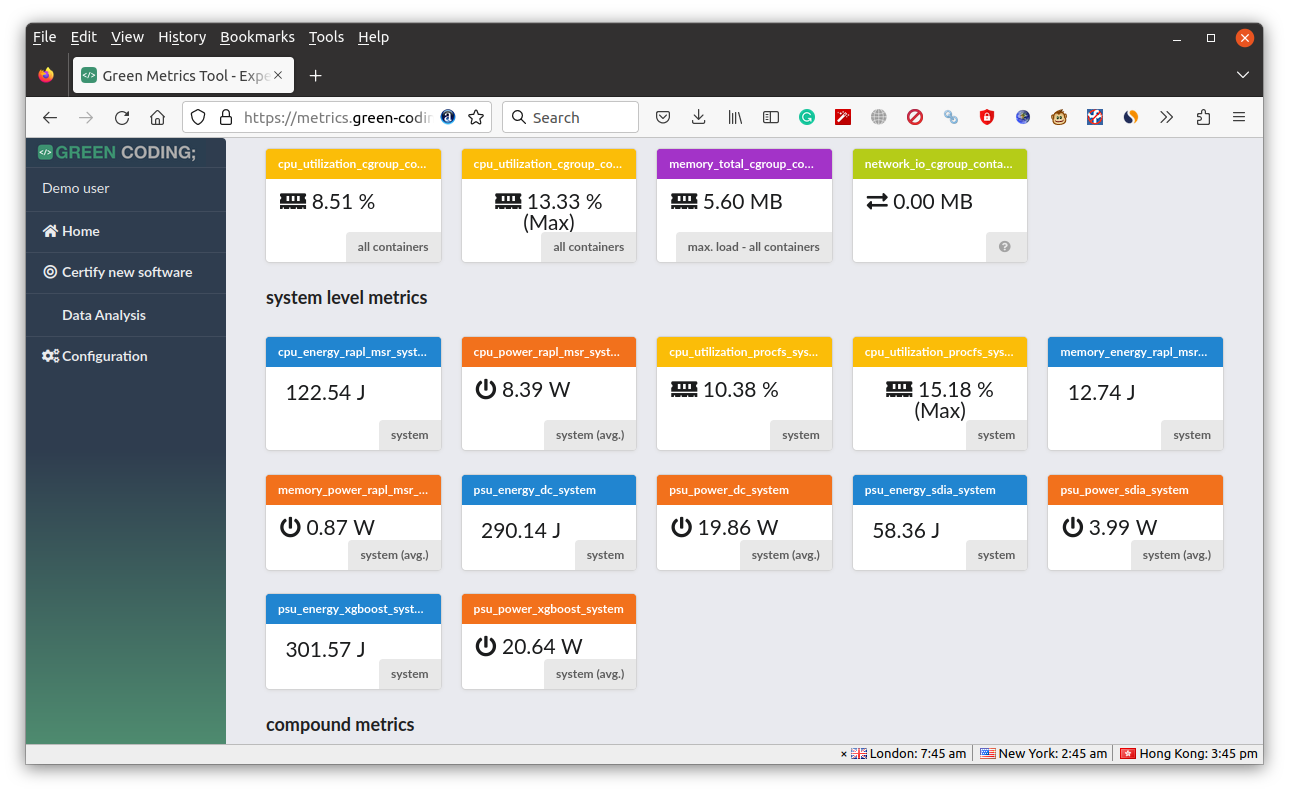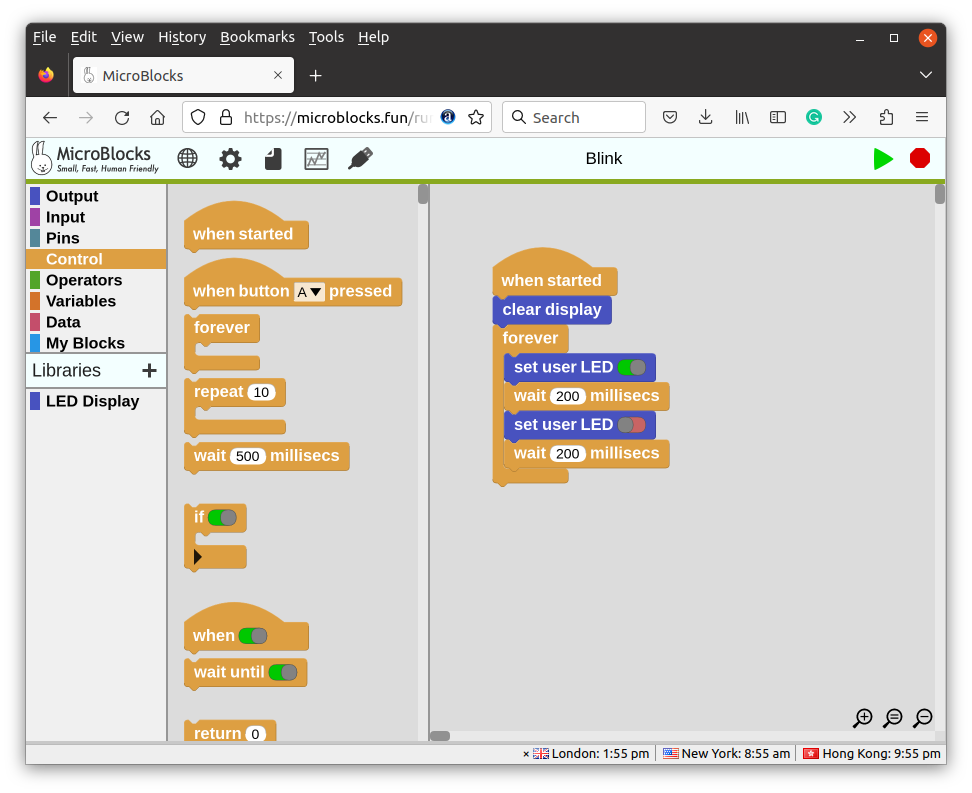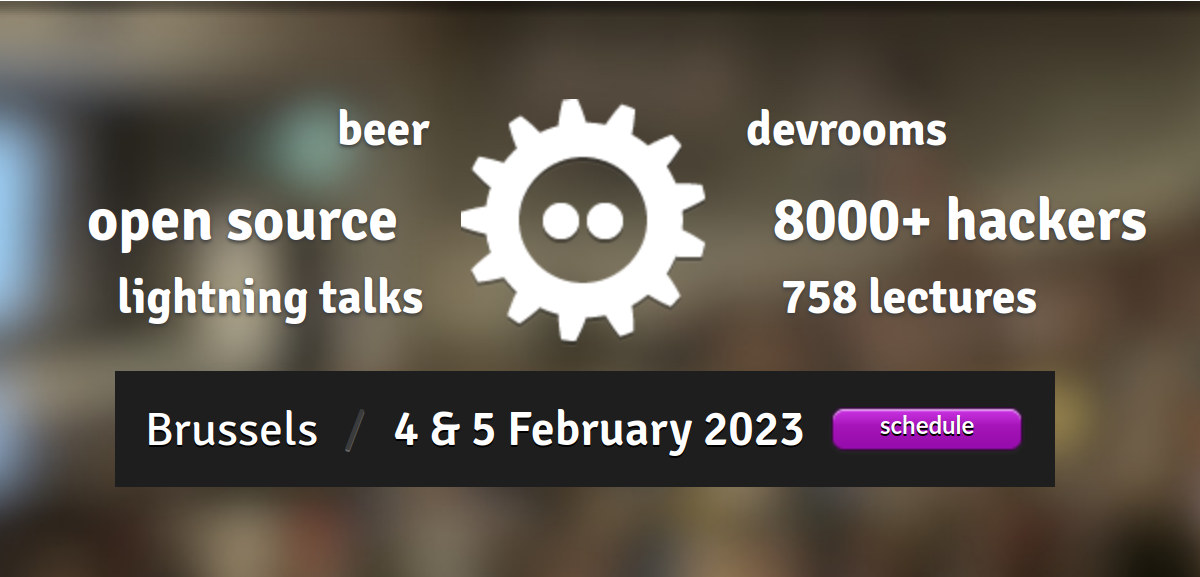VVenC and VVdeC are open-source software H.266/VCC video encoder and decoder respectively that are optimized to use SIMD instructions on x86 (SSE42/SIMDe and AVX2) and Arm, and the decoder runs on Windows, Linux, macOS, and Android. H.266, aka VCC (Versatile Video Coding) video compression standard was adopted in 2020 promising to reduce data requirements by around 50% compared to the previous H.265/HEVC standard at the same visual quality. H.266 should also outperform the royalty-free AV1 video codec. We hadn’t seen news since the announcement, but this may be changing with the Realtek RTD1319D processor unveiled with support for both 4K H.266 and AV1 video decoding last September, and progress made on the VVenC & VVdeC H.266 open-source software encoder/decoder as been discussed during FOSDEM 2023. The Fraunhofer HHI group has been working on VVdeC and VVenC since the specifications were finalized in 2022. Both are based on VTM reference software […]
FOSSBot open design 3D printed educational robot is made with Raspberry Pi and off-the-shelf parts
FOSSBot is an “open design” 3D printed educational robot comprised of a Raspberry Pi SBC and various off-the-shelf modules, as well as open-source software that can be used for education purposes. The FOSSBot DIY robot has been developed by the Harokopio University of Athens and the Greek Free and Open Source Software (GFOSS) community, and builds upon the “GSOC 2019 – A DIY robot kit for educators” with the main goal being to have a platform to “familiarize teachers with modern education models based on the S.T.E.A.M approach. (Science, Technology, Engineering, Arts, Mathematics)”. FOSSbot key components: SBC – Raspberry Pi Zero W, Raspberry Pi 3, or Raspberry Pi 4. Mechanically and electrically compatible Raspberry Pi alternatives could be an option too although part of the software would have to be modified Storage – 32GB MicroSD card Expansion board – Adafruit Perma-Proto HAT for Pi – No EEPROM to connect sensors […]
Green Metrics Tool helps developers measuring & optimizing software power consumption
The Green Metrics Tool (GMT) is an open-source framework that allows the measurement, comparison, and optimization of the energy consumption of software with the goal of empowering both software engineers and users to make educated decisions about libraries, code snippets, and software in order to save energy along with carbon emissions. While the firmware of battery-powered embedded devices and the OS running on your smartphone are typically optimized for low power consumption in order to extend the battery life, the same can not be said of most software running on SBCs, desktop computers, and servers. But there are still benefits of having power-optimized programs on this type of hardware including lower electricity bills, a lower carbon footprint, and potentially quieter devices since the cooling fan may not have to be turned on as often. The Green Metrics Tool aims to help in that regard. The developers explain how that works: […]
MicroBlocks is a visual programming IDE for 32-bit microcontrollers
MicroBlocks is a visual programming IDE for 32-bit microcontrollers currently supporting the BBC Micro:bit V1/V2, Calliope mini (aka the German Micro:bit), Adafruit Circuit Playground Express and Bluefruit, Raspberry Pi Pico and Pico W, and various other boards including ESP32 and ESP8266-based boards. I discovered MicroBlocks in the list of talks for FOSDEM 2023, and although it did not make it to my virtual schedule, I thought it was interesting to look into and write about it. In their upcoming FOSDEM talk, Bernat Romagosa and Kathy Giori refer to MicroBlocks as small, fast, and human-friendly with development guided by four guiding principles: liveness, parallelism, portability, and autonomy. The IDE is inspired by Scratch, and as such, looks very similar to other visual programming interfaces I have used over the years. You can launch MicroBlocks from Google Chrome or Microsoft Edge on a PC (not a mobile device) without having to install […]
FOSDEM 2023 schedule – Open-source Embedded, Mobile, IoT, Arm, RISC-V, etc… projects
After two years of taking place exclusively online, FOSDEM 2023 is back in Brussels, Belgium with thousands expected to attend the 2023 version of the “Free and Open Source Developers’ European Meeting” both onsite and online. FOSDEM 2023 will take place on February 4-5 with 776 speakers, 762 events, and 63 tracks. As usual, I’ve made my own little virtual schedule below mostly with sessions from the Embedded, Mobile and Automotive devroom, but also other devrooms including “Open Media”, “FOSS Educational Programming Languages devroom”, “RISC-V”, and others. FOSDEM Day 1 – Saturday February 4, 2023 10:30 – 10:55 – GStreamer State of the Union 2023 by Olivier Crête GStreamer is a popular multimedia framework making it possible to create a large variety of applications dealing with audio and video. Since the last FOSDEM, it has received a lot of new features: its RTP & WebRTC stack has greatly improved, Rust […]


